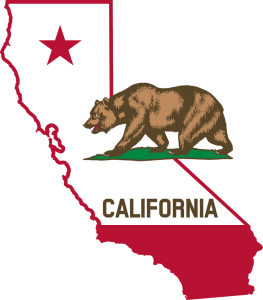The state of emergency (SOE) enacted during the COVID-19 pandemic officially drew to a close in California on Feb. 28, three years after it began.
California Governor Gavin Newsom called for an end to the SOE, touting the state’s low death rate, high vaccination rate, and low pandemic-induced economic and educational lapses relative to other states as triumphs of California’s anti-coronavirus policies. Critics, however, say that while the pandemic is over, its impact lingers.

“The single biggest mistake,” said Coronado Mayor Richard Bailey, “was trying to apply a one-size-fits-all approach and not following the science to create policies and recommendations that reflected the individual risks of individuals.”
Bailey questioned policies preventing healthy, low-risk individuals from assessing their own of personal risk tolerance, and said that the true cost disproportionately impacted lower income people.
“One of the most egregious policies, to me, was that service-based jobs and many blue collar jobs were not allowed to go to work, but white collar jobs, including government jobs, were allowed to go to work,” Bailey said to The Coronado Times and in a video posted to his social media accounts. “These policies were completely indefensible and they hit working class and minority populations the hardest.”
As with most contentious issues, both sides have their points: While California had one of the lowest death rates per capita in the country, per Newsom’s argument, Coronado had more lax pandemic policies than other cities and did not close all of its public spaces, but still had one of the lowest case rates in the county, to Bailey’s point.
And, though California students’ test scores didn’t drop as much during the pandemic as those from other states – point Newsom – California’s low-income, minority students’ scores dropped significantly due to food insecurity and Internet connectivity issues. Scores from Black and Hispanic Californians plunged to the bottom 20% of scores nationally. Plus, test scores across all states dropped, and California lost six years of educational gains in math and reading – point Bailey.
Plus, the achievement gap threatens to widen: Distance learning hurt low-income students, but it alerted more affluent parents to gaps in education, such as the lack of phonics instruction in many schools, leading to a surge in homeschooling even after the pandemic for those with the means to do it. It’s testament to, if nothing else, the impossibility of tracking the muddled and complicated long-term impact of the pandemic and its resulting public policy.
Newsom said in a statement that California’s economy shrank less and grew faster between 2019 and 2022 than those of other states. Most experts cite current inflation rates as a direct result of the pandemic and the money minted to pay stimulus checks, with the Federal Reserve holding interest rates high in attempt to curb it.
 Bailey, meanwhile, says the pandemic exacerbated an already-deep partisan divide in this country.
Bailey, meanwhile, says the pandemic exacerbated an already-deep partisan divide in this country.
“The unfortunate and long-term consequences of our state and region’s response,” Bailey said, “is it eroded trust in public institutions that often were making recommendations not based in actual science. We knew early on that healthy people were lower risk and that outdoor transmissions were rare, but our policies did not reflect that. They were rooted in political narratives that wanted to signal that they were doing something to address the virus, whether or not that something had any quantifiable impact.”
Bailey said that both sides of the political spectrum got this wrong, and said one of the biggest lessons of the pandemic was to follow policy, not political party.
Listen to the rest of Bailey’s thoughts here:
If video doesn’t play, watch it here.




